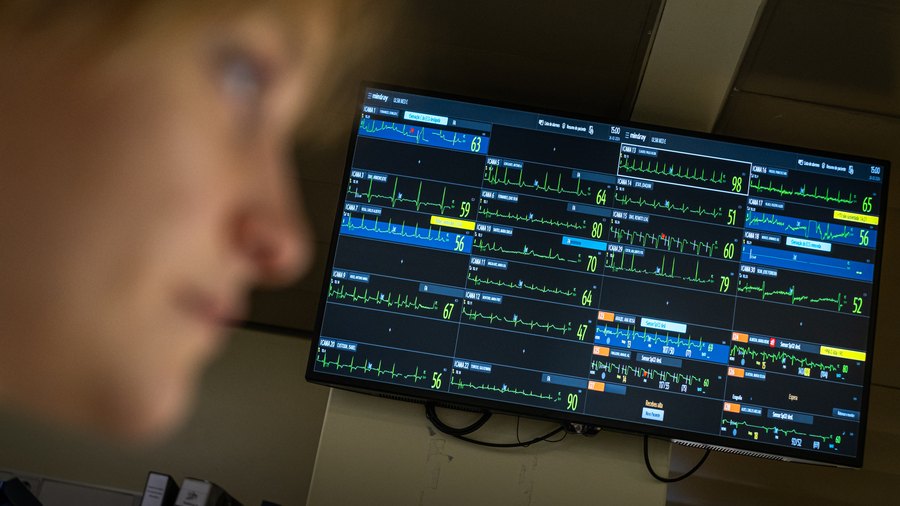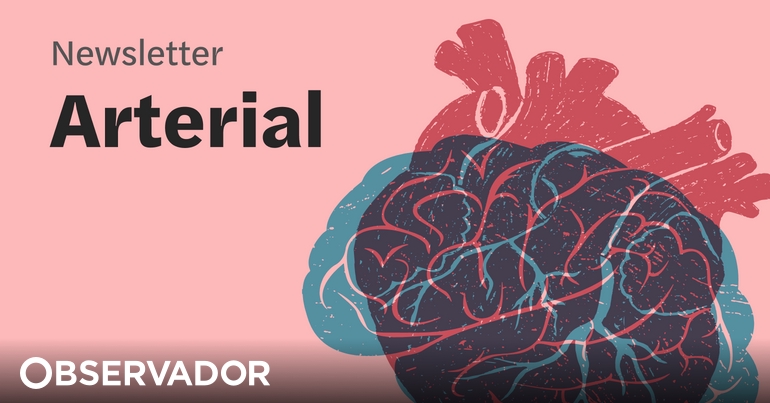
We are just a few days away from celebrating the first three months of Arterial, an observer division entirely dedicated to cerebrovascular disease (CVD). In these 120 days, there has been a lot of content to bring you: reports, opinion pieces, videos, explainers, and podcasts. Through survivor stories and first-person accounts, we report on what went well, what went less well, and what needs improvement in the lives of survivors. To date, we have published over thirty pieces of content on the Observer website and dozens of posts on social media networks, such as Facebook, Instagram, and LinkedIn.
There has long been talk among hospital managers, doctors, patients and their families about the need for a wide-ranging discussion on a national strategy for the prevention, management and treatment of CVD, which represents 2% of the EU's GDP. But it is necessary to expand the scope of dialogue to include political decision-makers. As former Health Minister Maria de Belem Rosera warned, using a study presented last year at the European Society of Cardiology Congress, the estimated economic cost in the EU of the leading cause of death in Portugal was €282 billion. “Every year, cardiovascular diseases cause 3.9 million deaths in Europe and more than 1.8 million in the EU, accounting for 45% of all deaths in Europe and 37% in the EU,” he highlights in the article he wrote for Arterial magazine.
Another former health minister, Fernando Leal da Costa, says it is necessary to strengthen collective action and political will to combat the leading cause of death in the country. In this opinion article, the doctor highlights the different ways to prevent cardiovascular diseases and highlights the role of everyone – the central administration of the health system, Infarmed, INEM, the General Directorate of Health, the Ministry of Health, among others – for health interventions that they presuppose due process. Through coordination, cooperation, interaction and integration.”
The statistics are well known, and cardiovascular diseases are not only those that kill more than others, but also those that “lead to early disability.” [antes dos 65 anos]even if it could be prevented.” In addition to the action of the state and the focus on what should be a priority “as an intelligent decision” for the country and society, says María de Belem Rosera, every citizen will be able to do his part: controlling risk factors.
We, for our part, will continue to raise awareness of the projects that are going well, the stories that need to be highlighted, and the need to have this broad discussion about the strategy to combat cardiovascular and cerebrovascular disease. Of course, it is important to develop good practices.
Did you know, for example, that it is possible to assess the risk of developing cardiovascular diseases from the age of 40 and thus avoid diseases such as stroke and heart attacks? We explain how in the informal consultation on Video format In conversation with cardiologist Antonio Miguel Ferreira and moderate-risk patient João Paulo Pires.
Last month, part of the Arterial team headed to Coimbra to learn about the Harmonics project, which allows stroke survivors to be remotely monitored when they return home. A pilot project by ULS Coimbra which, according to the coordinator, neurologist João Sargento Freitas, came “to fill the gap that exists in the follow-up of patients, especially after discharge from hospital”. At this stage patients feel “lost” and suffer from a greater lack of follow-up. The report was written by journalist Carla Mateos and the photos were taken by Tomas Silva and Sergio Azenha.
This was – and still is – precisely the feeling of Kristina Saraeva, a former journalist, as she recovers from the stroke she suffered ten years ago. He lives in Castelo Branco and faces daily difficulties in accessing some services, as a result of existing inequalities in health care in the interior of the country. This is what he points out in his authorship record and also the non-conformity he faced in deciding to retire on disability so early.
Valter Vaz had a different experience, having a close support network, which includes family and friends, but also his boss who supports all the treatments from the beginning and who relies on the commercial to return to the company, being available to adapt its functions.
One of Arterial's interests is to give a voice to specialists from different fields, as multidisciplinary teams are essential to get the most appropriate treatment for these patients. For example, being a nurse in the cardiology department of a hospital is difficult to express in words. Just like the effort necessary every day when you are surrounded by death and disease. But also the noble art of caring. In this duality of feelings, nurses learn to “eat lunch in ten minutes,” to have “their social lives hanging by a thread,” and to repeatedly decline invitations, said Leonor Soares, a nurse at Santa Cruz Hospital.
To be informed directly about Arterial content, I suggest you activate notifications. By subscribing, you will directly learn about the latest news about this project here.
And if you're still here, enjoy it, and if you haven't already, sign up for this monthly newsletter.

“Wannabe internet buff. Future teen idol. Hardcore zombie guru. Gamer. Avid creator. Entrepreneur. Bacon ninja.”

